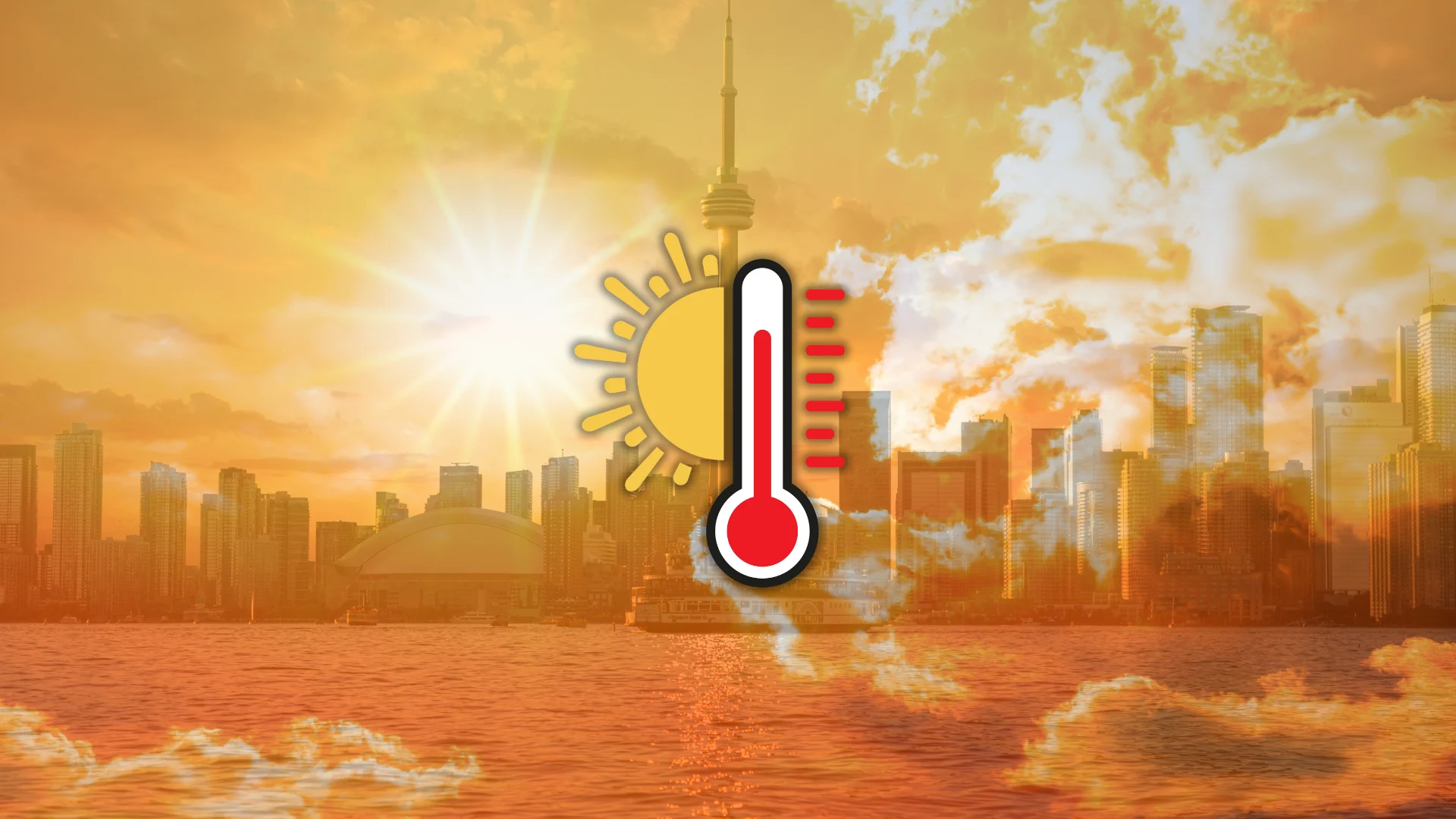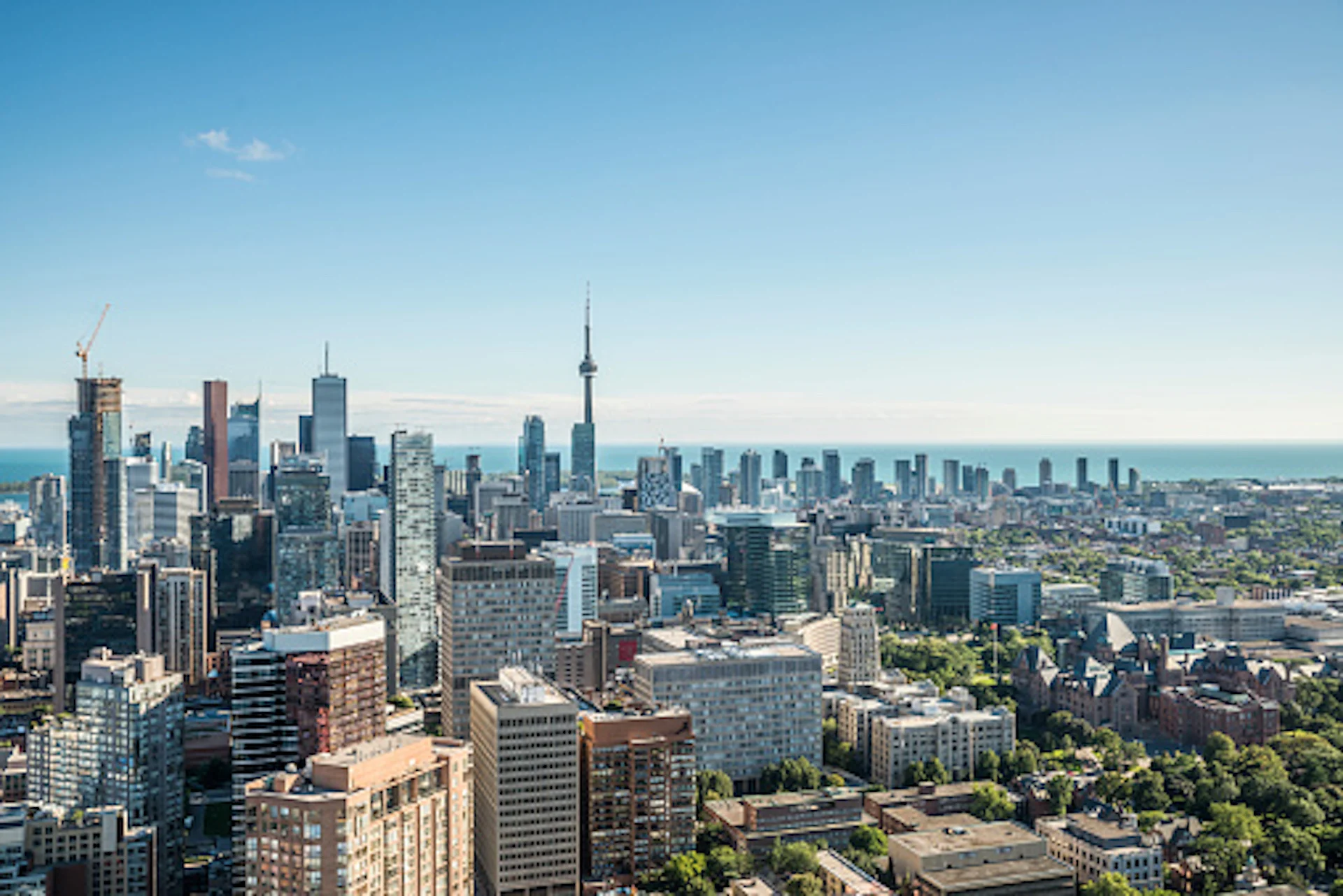
Toronto's summer of extreme heat. In 2050, it might be standard: Climatologist
This summer has been one of the hottest on record in Toronto, with six heat waves recorded already, but climatologists have a message for people who've felt like the dog days are getting hotter and longer: get used to it.
Conservative forecasting models suggest the extreme heat of this summer will be the average in 2050, says Environment Canada climatologist David Phillips.
DON'T MISS: 2025 could land in top 3 warmest years on record: Canadian government
The summer of 2025, which still has four weeks to go, has already had double the annual average of days over 32 degrees Celsius, according to Environment Canada. In 2000, temperatures were that high on average four days a year.
That's gone up up to seven over the past five years.
"This summer, we've had 14 of those suckers," said Phillips. In 25 years, models suggest an average of 15 to 16 days above 32 C.

"It's almost like a dress rehearsal, a preview, a glimpse of what summers are going to be like in 2050," he said. "Nature's giving us a heads-up."
Lauren Hazlewood grew up in the Caribbean, but she says the heat in Toronto has been hitting her hard this summer.
"I feel like even it's become a bit unbearable for me, especially as a commuter," she told CBC Toronto this week. "Being on the bus, on the streetcar, it's very warm. I usually try to bike to work and I've kind of given up on that."
Sanaz Ghasemi, who lives in a condo downtown, says she normally loves hot and humid weather, but it's been weighing on her this year.
"It's just like warning signs of the kind of direction we're heading. It's a little bit scary," she said.
Today's extremes, tomorrow's norms
But hotter nights could be even more alarming, Phillips said.
"Major cities just don't cool off. There's too much asphalt and building materials and concrete," he said.

Torontonians brave the sun during a heat warning in July. An Environment Canada climatologist says the weather agency's modelling forecasts that the extreme heat of this summer could become the norm in 25 years. (Evan Mitsui/CBC)
In 2000, there were an average of 12 nights each year in Toronto above 20 C. So far this year, there have been 24 that have hit that temperature. Models suggest an average of 23 nights like that in the city in 2025, Phillips said.
And those are just the expected averages. Phillips says extremes 25 years from now will look much worse.
"Imagine a whole month or more of temperatures that are getting up to 33 degrees [Celsius] at least," he said. "And of course with the heat and the dryness, it brings on more fires. And so we're adding smoke into that."
Canada has already had its three worst forest fire seasons on record all in the last three years, he says.
Droughts caused by extreme heat can also make the impacts of other extreme weather more severe, says CBC meteorologist Colette Kennedy.

Toronto skyline. (Getty Images/IVYPHOTOS/459279449-170667a)
"We could have too much rain at once, [so] that we can't absorb it," she said. That could mean worse flooding in the city.
Phillips says it's crucial cities like Toronto continue to take concrete actions to reduce greenhouse gas emissions to curtail the effects of climate change, while also making sure that infrastructure can handle more extreme summers.
Extreme heat can warp rail tracks, slowing trains, for instance, or melt asphalt on roads, he says.
"When we rebuild or build newer infrastructure, we better wake up to the fact that our climate has changed," Phillips said.
WATCH: Why humidity makes you feel hot in the summer, but not winter
The story was originally written by Ethan Lang and published for CBC News. It contains files from Chris Glover.
